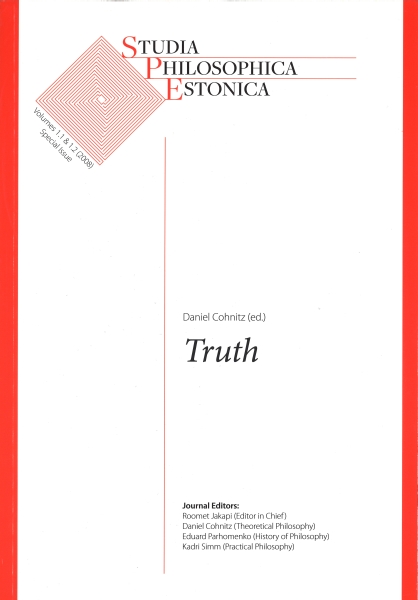Deflationary Truth and Truth-Biology
DOI:
https://doi.org/10.12697/spe.2008.1.2.08Keywords:
truth, deflationism, truth-biologyAbstract
Many or almost all writers about truth seem to agree that the entailment by a more or less formal account of truth of all the instances of the so-called disquotational schema - (DQ) <p> is true if and only if p - is at least a necessary condition for this account to count as an adequate account of truth. My first task in this paper is to show that the correctness of the observation (DQ) does not by itself imply that truth lacks substance. My second task is to establish the instances of (DQ) as not only necessary but also sufficient for a characterisation of truth. Such a minimal theory of truth would seem to rob truth of all substance but going in for a more eloquent alternative as I shall attempt to show could result in an unwanted epistemisation of truth.
Downloads
References
David, M. (1994). Correspondence and Disquotation, Oxford University Press.
Field, H. (1994). Deflationary views of meaning and content, Mind 103: 249-285.
Grover, D., Camp, J.L. and Belnap, N.D. (1975). A prosentential theory of truth, Philosophical Studies 27: 73-125.
Horwich, P. (1990). Truth, Basil Blackwell, Oxford.
Horwich, P. (1995). Meaning, use and truth, Mind 104: 355-68.
Kripke, S. (1982). Wittgenstein on Rules and Private Language, Harvard University Press.
Quine, W.V.O. (1990). The Pursuit of Truth, Harvard University Press, Cambridge, Mass.
Tarski, A. (1944). These mantic conception of truth and the foundations of semantics, Philosophy and Phenomenological Research 4: 341-76.

